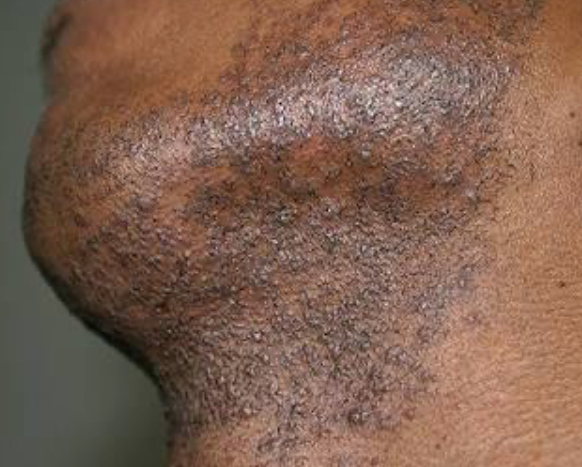Black Marines razor bumps policy
A recent policy change by the U.S. Marine Corps is under fire after critics raised concerns about potential racial disparities in grooming regulations. The updated directive permits the administrative separation of Marines suffering from pseudofolliculitis barbae (PFB)—commonly referred to as razor bumps—if the condition does not resolve after a year of documented treatment.
PFB is a chronic skin condition caused by ingrown hairs, typically as a result of shaving. It is especially prevalent among Black men, due to their tightly curled hair texture. In military settings, where daily shaving is mandatory, the condition can become severe and lead to painful bumps, scarring, and long-term skin damage.
What Is Pseudofolliculitis Barbae?
Pseudofolliculitis barbae is recognized medically as a common dermatological condition that affects people who shave regularly—particularly those with coarse or curly hair. Symptoms include inflammation, razor bumps, and scarring from hair re-entering the skin post-shaving. The American Academy of Dermatology has long noted the higher incidence of PFB among African American men.
Details of the Updated U.S. Marine Corps Policy
As outlined in a March 2025 update, the Marine Corps now enforces a four-step medical intervention plan for those diagnosed with PFB:
-
Initial Rest Period – A four-week cessation from shaving to allow inflammation and bumps to heal.
-
Intermediate Treatment Phase – An extension of four to eight weeks with potential use of depilatory agents for more severe cases.
-
Ongoing Evaluation – Continued non-shaving treatment protocols and dermatological oversight.
-
Advanced Intervention – Referral to a specialist for possible government-funded laser hair removal.
If a Marine still requires a shaving waiver after one year, they could be deemed “incompatible with service” and subject to administrative separation.

Racial Equity Concerns in the Ranks
The policy’s critics say it could function as a backdoor discharge tool for Black Marines, noting a stark racial disparity in who suffers from PFB. Although Black service members make up around 15% to 16% of the military, they represent roughly 66% of all PFB shaving waivers.
An active-duty military dermatologist cautioned:
“While this policy technically applies to everyone, the vast majority of those affected—and facing career-ending separation—are Black. That’s where the racial discriminatory impact comes in.”
“Click here for more North Carolina News“.






